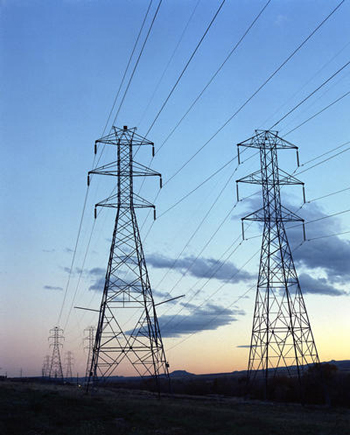Outdated equipment causes another energy crisis in Moscow's south
The largest hydroelectric power stations were built in the USSR in the 1950s on the Volga River
Another blackout took place in the south-west of Moscow on Tuesday morning. The breakdown on Semyonovskaya substation occurred at 8:30 a.m., Interfax said. Apartment blocks situated on the territory of five residential areas in the south-west of Moscow were left without electricity as a result of the breakdown. According to the information from RAO UES of Russia, the work of the Semyonovskaya substation was resumed at about 11:00 a.m. 
Twelve trolleybus and four tram routes were disconnected from electric power, a spokesperson for the Moscow Department of Transport told Interfax. The traffic on the routes was completely resumed at 9:45 a.m. The power outage did not affect the work of the Moscow metro, the source in the department said.
Specialists are currently evaluating the damage of the blackout. The power outage was reportedly caused with a tree, which fell down on one of the power lines of the Semyonovskaya substation, Echo of Moscow radio station said. The consequences of the state of emergency were removed within three hours. No medical or other socially significant institutions suffered as a result of the accident, a source with the Russian energy giant, RAO UES of Russia said.
Today's blackout pales in comparison with the energy crisis, which Moscow had to experience a short time ago, on May 25th of the current year. The massive blackout hit the whole south of the Russian capital, as well as several adjacent regions. Over four million people suffered in the blackout; about 20 million people were blocked in the Moscow metro, whereas 1.5 thousand people had to spend hours in stuffy elevators.
According to official statements from the administration of the Unified Energy Systems of Russia (RAO UES of Russia), the blackout occurred because of the outdated equipment. Specialists forecast that new states of emergencies are likely to follow in the future taking into consideration the growing demand in electric power in Moscow.
About two-third of Moscow's energy systems need to be reconstructed or modernized urgently, specialists for the Moscow energy company, Mosenergo say.
The largest hydroelectric power stations were built in the USSR in the 1950s on the Volga River. The resources of three largest power stations were used for the Moscow energy system, which saved the Russian capital from any problems with electric power for decades. The recent blackout, which paralyzed Moscow on May 25th, became the only serious crisis in the work of the giant energy system, Newsru wrote.
Subscribe to Pravda.Ru Telegram channel, Facebook, RSS!




